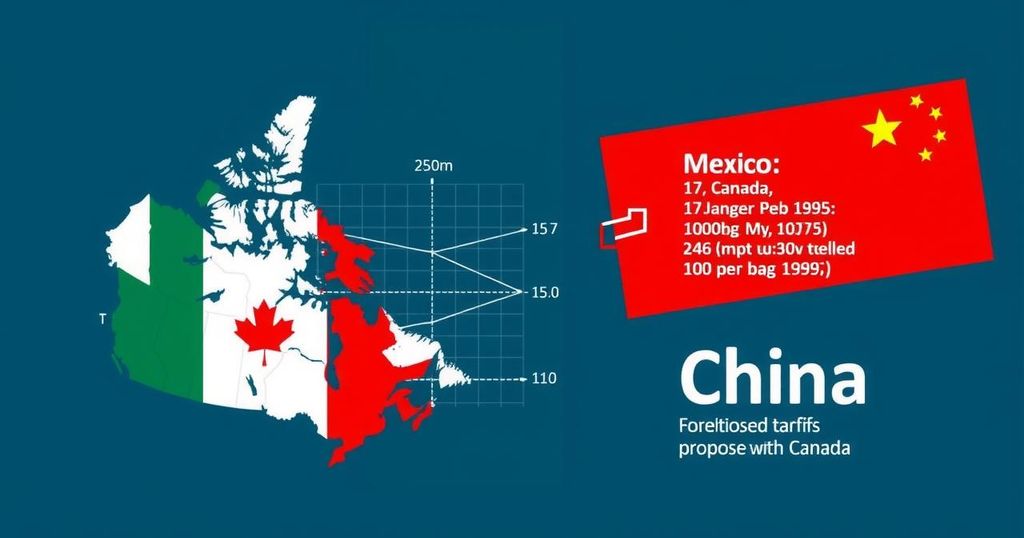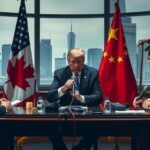Trump Proposes Tariffs on Major Trading Partners: A Shift in U.S. Trade Policy
President-elect Donald Trump has announced plans to impose significant tariffs on imports from Mexico, Canada, and China, aiming to protect American industries. This bold strategy has drawn a warning from China, urging that no victor emerges from a trade war. The announcement portends a shift in U.S. trade relationships as the new administration prepares to take office.
In an assertive move, President-elect Donald Trump announced his intention to impose substantial tariffs on imports from key trading partners, namely Mexico, Canada, and China. This announcement, made via his Truth Social account, reflects his administration’s priority to alter the United States’ trade policy and protect domestic industries from foreign competition. The anticipated tariffs are expected to impact a vast array of goods entering the U.S. from these nations, indicating a significant shift in trade relations.
Shortly after Trump’s declaration, the Chinese government reacted with caution, issuing a statement warning that a trade war would yield detrimental consequences for all involved parties. This warning highlights the potential ramifications that such tariff implementations may have on the global economy, as well as bilateral relations between the United States and these countries. The prospect of escalating tariffs signals an uncertain economic landscape, prompting concerns among various stakeholders as the new administration takes office.
The discussion surrounding trade and tariffs has been a pivotal issue in U.S. politics, particularly under the Trump administration. The imposition of tariffs serves as a protective measure aimed at bolstering American industries against foreign competition. Historically, tariffs have been leveraged to negotiate better trade agreements, but they can also trigger retaliatory measures from affected nations, leading to potentially destructive trade wars. The comments from Trump point to a renewed focus on domestic production and an effort to remedy perceived trade imbalances with powerful nations like China, Canada, and Mexico.
In summary, President-elect Donald Trump’s proposed tariffs could bring profound changes to U.S. trade policy, particularly concerning Mexico, Canada, and China. While aimed at protecting American jobs and industries, such significant tariff actions carry the risk of inflaming trade tensions and inciting retaliation from affected nations. As the global economic environment becomes increasingly volatile, stakeholders will closely monitor how these policies unfold and their subsequent impact on international trade dynamics.
Original Source: www.djournal.com








Post Comment